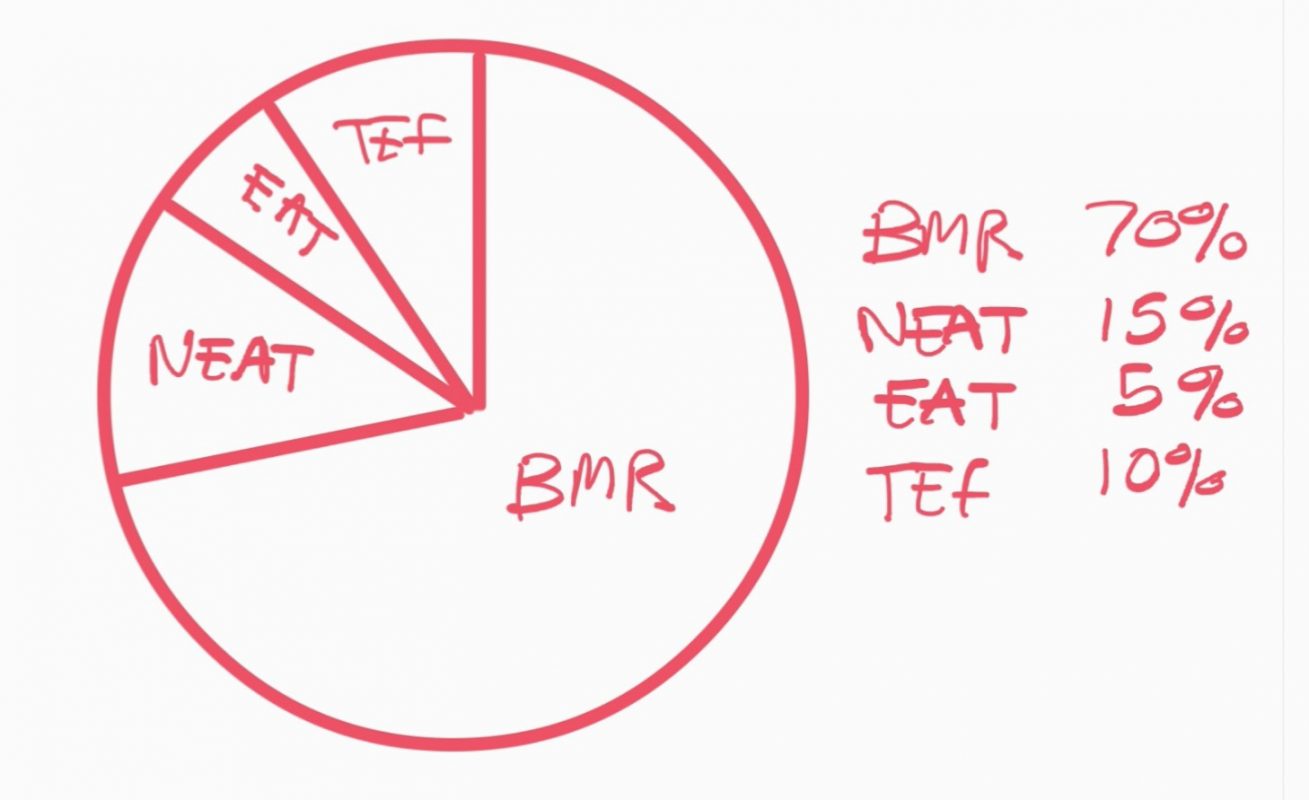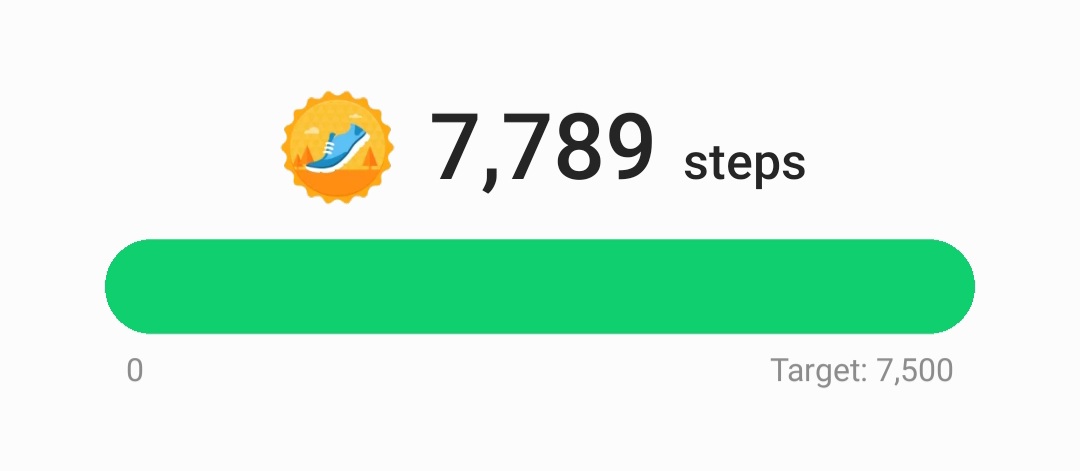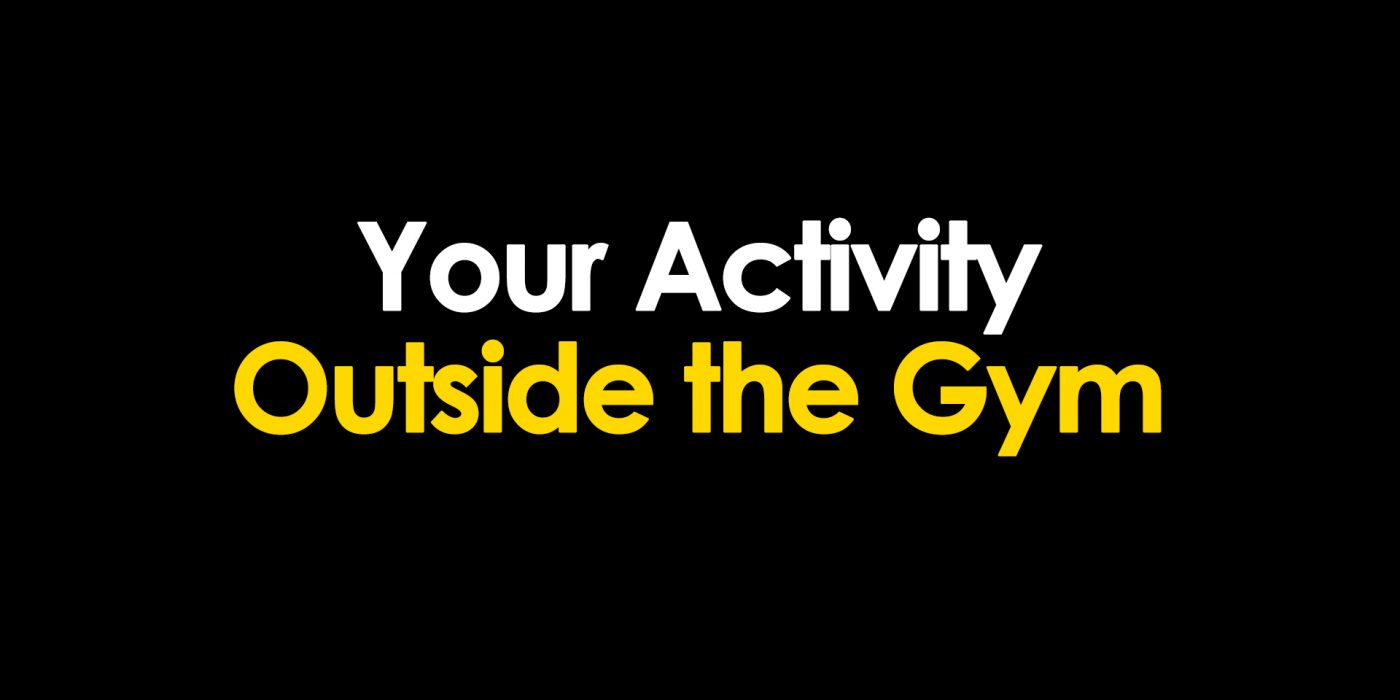There is a lot of emphasis placed upon getting to the gym and working out. If you’re lucky you can spend an hour a day there, but what about the remaining 23 hours a day?
Today I want to talk about your activity outside of the gym.
If you prefer video to written content you can watch the video at the bottom of this post instead.
You see, we have multiple ways we burn calories throughout the day. Of those, we have EAT and NEAT. EAT is exercise activity thermogenesis which is just a fancy way of saying the calories we burn during intentional exercise. NEAT is non exercise activity, which is unintentional exercise through things like fidgeting, walking and cleaning.

As you can see we burn far more calories through NEAT than we do with EAT. In other words the activity you have outside of the gym makes up a larger chunk of daily calorie expenditure than the efforts in the gym. This is probably surprising as you’re likely not even considering it.
Now, just to be clear I’m not trying to discourage you from going to the gym. I’m simply trying to highlight the importance of your efforts outside of the gym. We are all looking for the optimal training and nutrition plans but we should also be looking at our NEAT.
The easiest way we can do this is to have a daily step count goal.
NEAT makes up a larger chunk than EAT remember. So improving your step count will contribute to your fat loss goals. But I’d like to point you to some great new research to highlight the other benefits to our health and longevity from improving step counts.
This 2021 meta analysis by Jayedi et al. found a dose response association between the amount of steps done daily and the protective health benefits. What this means in simple terms is the higher the step count, the lower the risk of death (by all causes).
Researchers found a 12% lower rate of all cause mortality per 1000 steps done. This is huge! To put this into perspective resistance training offers a 21% lower all cause mortality rate vs no exercise at all. For more context smoking and alcohol consumption increase our risk of all cause mortality, so does being obese.
“Walk away from an early grave”
– Greg Nuckols
Another review from 2015 found increasing step count through a walking intervention reduced depression, blood pressure, resting heart rate, body fat, BMI and total cholesterol whilst increasing VO2 max.
My own progress
I started to prioritise my own step count once I saw this research.

I’m currently aiming for 7.5k a day which is achievable and sustainable for me and a significant improvement on my average for 2021. This is something I began at the beginning of the year and I’ve already noticed a much clearer head and a reduced resting heart rate.
We can improve step counts by taking the stairs instead of a lift, playing with your kids or parking further away from work. Getting up regularly in the office can have a big impact too. Remember all movement and steps add up across the day. It doesn’t need to be a dedicated 90 min walk to reach the goal, this is hard for most people to schedule. Having a treadmill at home massively helps too, especially for those days I’m 1000 or 2000 under my goal.
Think about accumulation throughout the day. If you’ve read my small change, big impact post, you’ll know I love the accumulation mindset. Small actions can seem insignificant alone but when tallied up can definitely be substantial.
To summarize, it’s great spending an hour in the gym multiple times per week, strength training does have longevity benefits, but there really is no comparison to moving more across the day.


